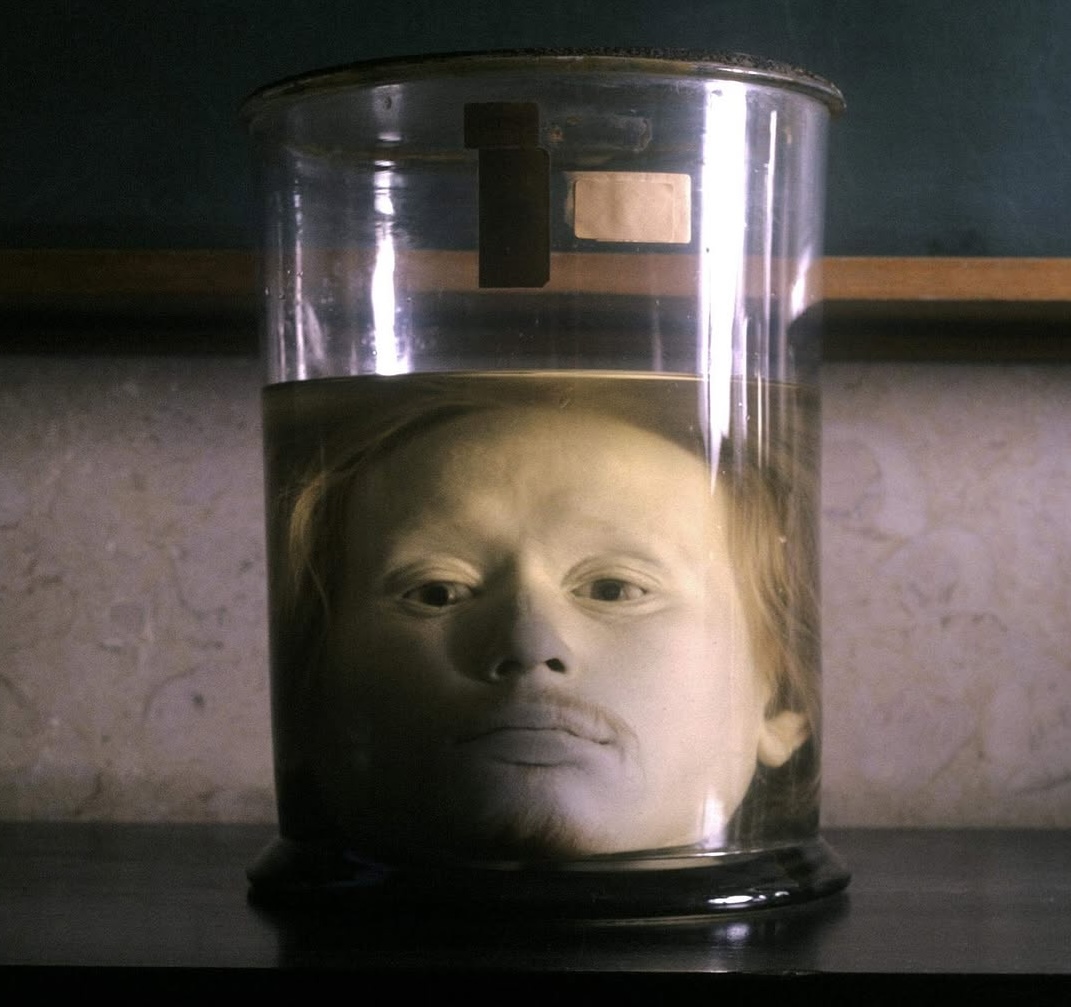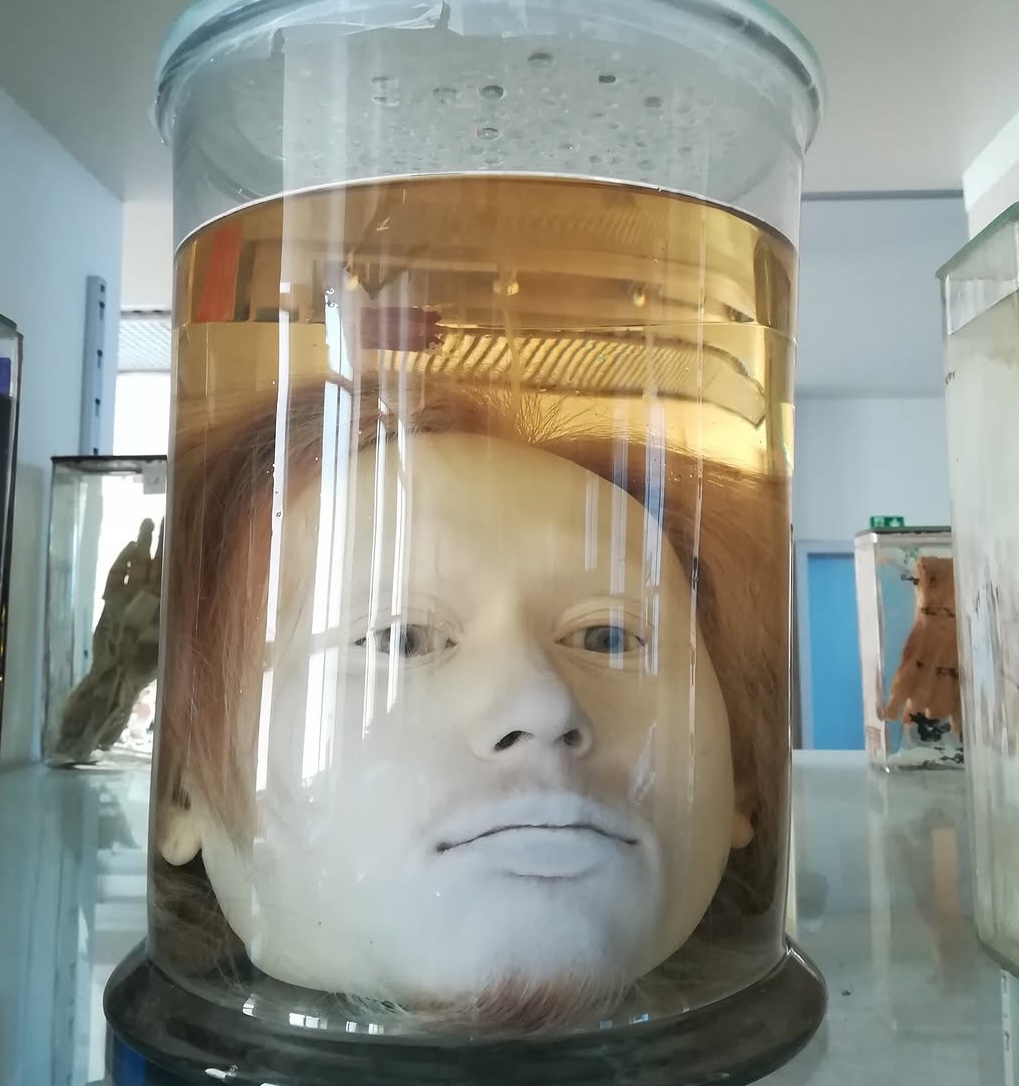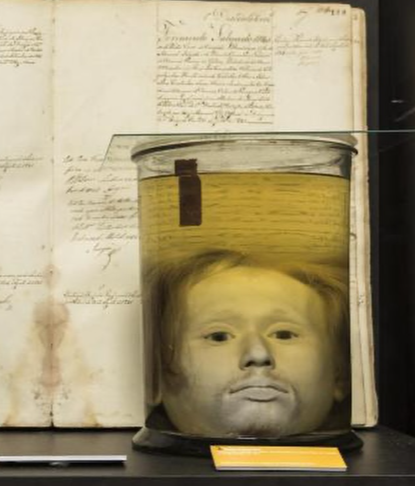
Diogo Alves was one of Portugal’s most notorious criminals, often considered its first serial killer. Born in Galicia, Spain, around 1810, he moved to Lisbon, where he worked as a servant before turning to crime and leading a gang that terrorized the city.
Between 1836 and 1839, he robbed and murdered victims at the Águas Livres Aqueduct, throwing them from a height of over 60 meters. Authorities initially mistook the deaths for suicides, allowing the killings to continue. He is believed to have murdered 60 to 70 people. When security increased, his gang shifted to home invasions and killings. Captured and sentenced to death for murdering a family, he was hanged in 1841. In 1867, Portugal became the first country in the world to abolish the death penalty.
His head was severed and preserved for phrenological study, a now-debunked theory linking skull shape to criminality. Today, over 180 years later, his skull remains on display at the Museum of the Faculty of Medicine of the University of Lisbon, a chilling relic of Portugal’s criminal past.


